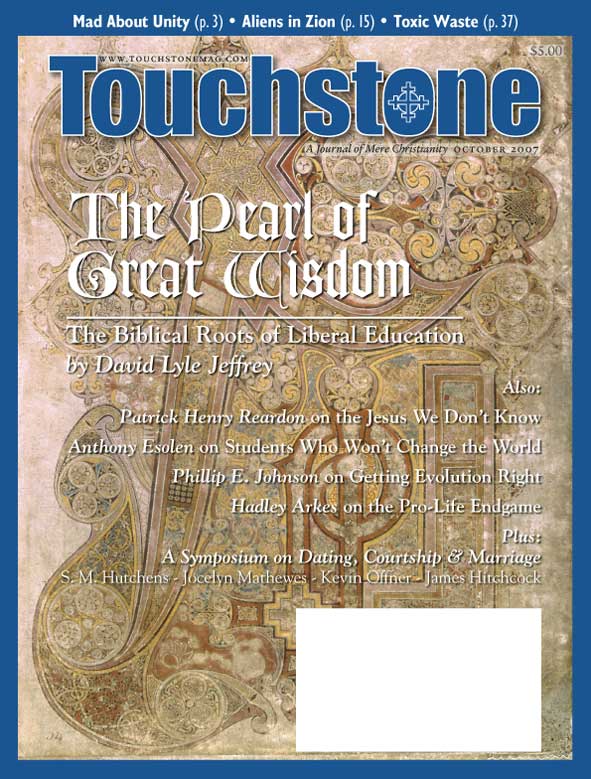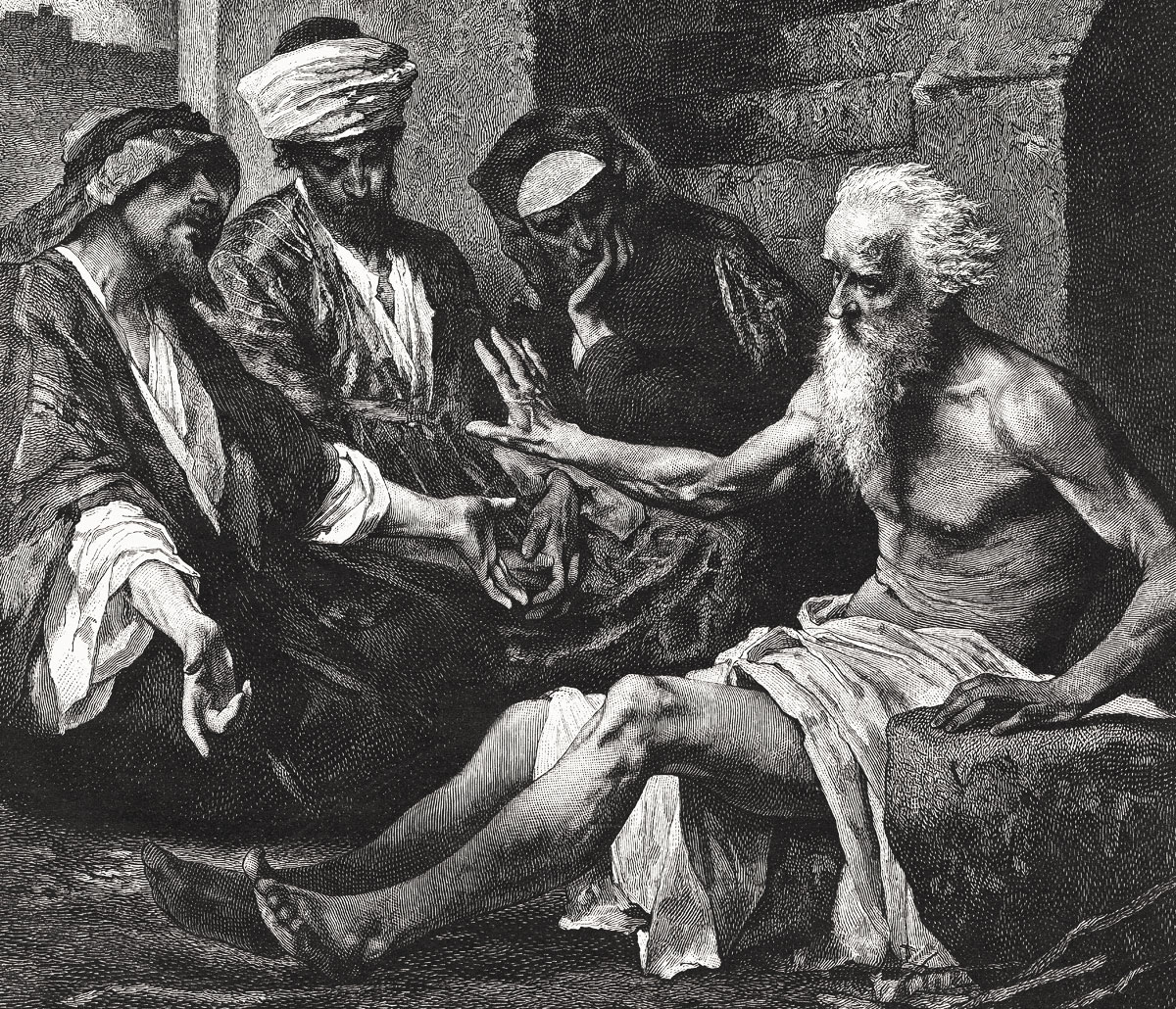Aliens in Zion
Louis Markos on Why I Can’t Be Just Another Earthman
Though their knowledge of English was sketchy at best—the only English word that they understood firmly was “awesome”—I managed to have a brief, broken conversation with two young men from Austria sitting near me on the bus driving through the canyon in Zion National Park. In an effort to forge a non-verbal link with them, I asked one if he could hum for me the Austrian national anthem. He responded quickly, and somewhat defiantly. “I,” he said proudly, “am an Earthman.”
“Do you mean,” I asked, resorting to a word whose Greek etymology, I hoped, would translate into German, “that you are cosmopolitan?”
“Yes,” he said eagerly. “Yes, I am cosmopolitan.”
That was the reason he would not sing. He did not view himself as an Austrian, but as a “citizen of the world.”
Cherished Identities
My first response was positive. After all, I thought, was not World War II caused in great part by European and Asian nationalism? Is it not a good thing that the myriad nationalities of Continental Europe should merge into a United States of Europe that would boast a single, combined culture to complement its single monetary unit?
That was my first response. My second, more reasoned, response came a bit later. True, I conceded to the American egalitarian inside of me, many of Europe’s wars were caused or intensified by nationalism, but that does not mean that nationalism is a simple, unequivocal evil.
There is a deeper, more essential kind of nationalism that resides in the hearts of men whose love for their country is akin to their love for their family and their patrimony. Most of what we most cherish in European culture was not born out of an abstract cosmopolitanism but out of a strong and concrete patriotism.
Those great authors we hail as being not for an age but for all time, would not have achieved their transcendent status had they not been nourished by a very specific, if not parochial sense of identity: the Greek (Athenian) Sophocles, the Roman Virgil, the Italian Boccaccio and (Florentine) Dante, the Spanish Cervantes, the English Chaucer, Shakespeare, and Milton, the German Goethe, the French Molière, the Russian Dostoevsky.
After its account of the Flood and its aftermath, the Book of Genesis lays out the table of nations: that is, the many people groups or nations that sprang out of the loins of the three sons of Noah. Nowhere is it suggested that the formation of these separate nations is a bad thing.
Louis Markos , Professor in English and Scholar in Residence at Houston Baptist University, holds the Robert H. Ray Chair in Humanities. His 19 books include Lewis Agonistes; Restoring Beauty: The Good, the True, and the Beautiful in the Writings of C. S. Lewis; On the Shoulders of Hobbits: The Road to Virtue with Tolkien and Lewis; and From A to Z to Narnia with C. S. Lewis.
subscription options
Order
Print/Online Subscription

Get six issues (one year) of Touchstone PLUS full online access including pdf downloads for only $39.95. That's only $3.34 per month!
Order
Online Only
Subscription

Get a one-year full-access subscription to the Touchstone online archives for only $19.95. That's only $1.66 per month!
bulk subscriptions
Order Touchstone subscriptions in bulk and save $10 per sub! Each subscription includes 6 issues of Touchstone plus full online access to touchstonemag.com—including archives, videos, and pdf downloads of recent issues for only $29.95 each! Great for churches or study groups.
Transactions will be processed on a secure server.
more on culture from the online archives
more from the online archives

11.5—September/October 1998
Speaking the Truths Only the Imagination May Grasp
An Essay on Myth & 'Real Life' by Stratford Caldecott

24.6—Nov/Dec 2011
Liberty, Conscience & Autonomy
How the Culture War of the Roaring Twenties Set the Stage for Today’s Catholic & Evangelical Alliance by Barry Hankins
calling all readers
Please Donate
"There are magazines worth reading but few worth saving . . . Touchstone is just such a magazine."
—Alice von Hildebrand
"Here we do not concede one square millimeter of territory to falsehood, folly, contemporary sentimentality, or fashion. We speak the truth, and let God be our judge. . . . Touchstone is the one committedly Christian conservative journal."
—Anthony Esolen, Touchstone senior editor










